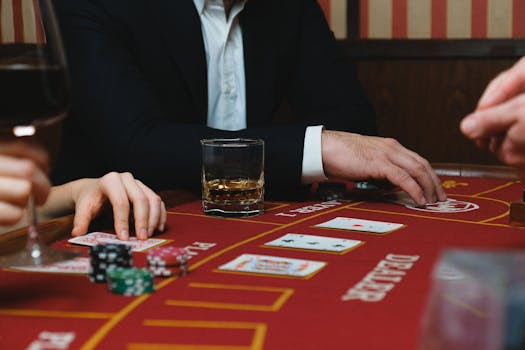The Role of Psychology in Gambling Behavior
Gambling, a practice as old as history itself, intersects intriguingly with psychology. This article explores the psychological mechanisms that underpin gambling behavior, offering insights into why people gamble and how it affects them.
Understanding Gambling Psychology Psychology plays a crucial role in gambling, influencing decisions and behaviors. It's not just about luck and chance; psychological factors deeply affect gambling habits and susceptibility to gambling addiction.
Cognitive Biases and Gambling Many gamblers fall prey to cognitive biases that distort their perception of odds and decision-making. The 'gambler’s fallacy,' for example, is the belief that past events affect future outcomes in independent events, leading players to assume that a win is "due" after a string of losses.
Another bias, the 'illusion of control,' sees players overestimating their ability to influence a game’s outcome. This can be seen in games that involve a semblance of skill, like sports betting or poker, where players might believe their skills or strategies can control the game.
Advantages and Disadvantages Understanding these biases can help gamblers make more informed decisions, potentially reducing harmful gambling behavior. However, awareness alone is rarely sufficient for those with a gambling disorder, as deeply ingrained cognitive biases can be difficult to overcome without professional help.
Emotional Influences in Gambling Emotions play a significant role in gambling behavior. The thrill of a win or the despair of a loss can significantly affect how and why individuals gamble. Emotional highs and lows may lead to 'chasing losses,' where gamblers continue playing to recoup lost money, often exacerbating the financial and emotional damage.
The advantage of understanding emotional influences is significant as it can lead to the development of strategies to manage emotions and reduce impulsive gambling. However, the disadvantage lies in the complexity of human emotions, making standardized solutions challenging.
Practical Examples Casinos often design environments that exploit psychological principles—dim lighting, absence of clocks, free amenities—to encourage prolonged gambling sessions. Online gambling platforms employ tactics like quick bet prompts and frequent small wins to keep players engaged.
Conclusion and Recommendations The role of psychology in gambling is multifaceted, influencing everything from the allure of a potential win to the sting of a loss. Recognizing the psychological aspects can help gamblers maintain control and make rational choices. For those struggling with gambling, seeking help from professionals who understand the psychological roots of gambling behavior is crucial.
For further understanding, readers can refer to the National Council on Problem Gambling or visit sites like [insert trustworthy source here] for more information and resources.
Remember, understanding the psychology behind gambling can be the first step toward healthier gambling habits or making the decision to stop gambling altogether.

.png)





